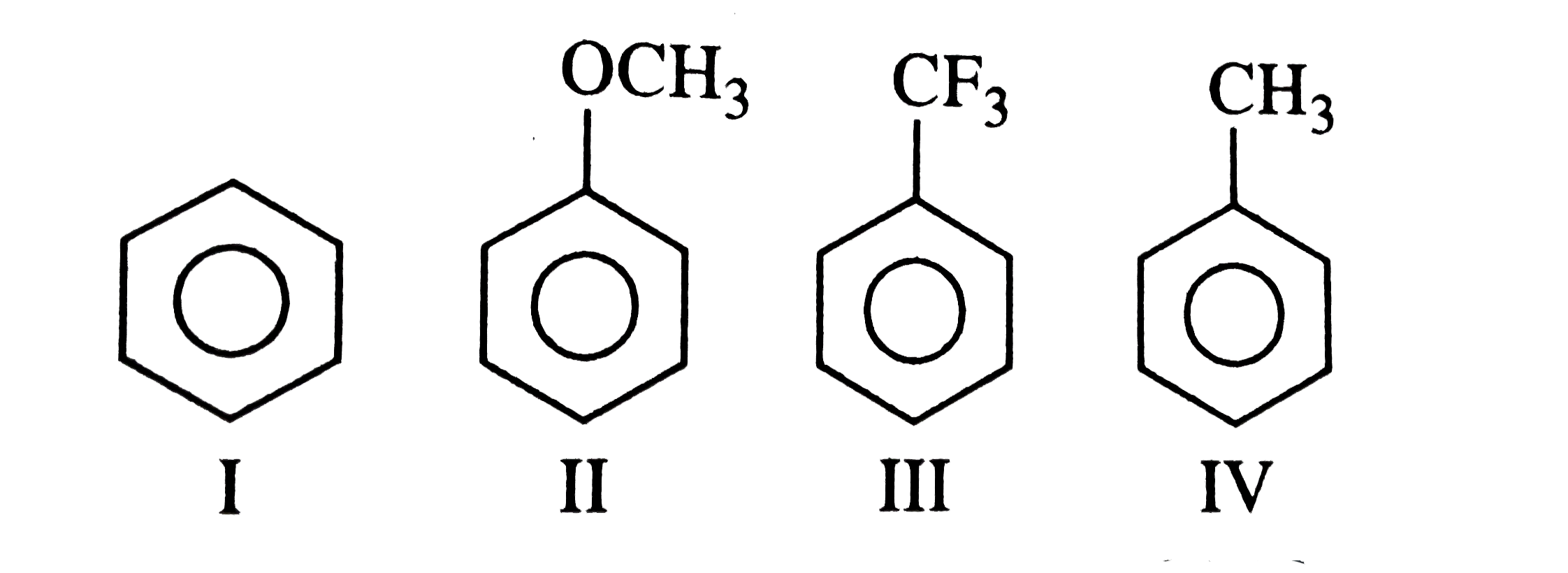Chlorobenzene is ______ reactive than benzene towards electrophilic substitution and directs the incoming electrophile to the_____ position.
more, ortho/para
less, ortho/para
more, meta
less meta
The correct Answer is:B
To answer the question, we need to analyze the reactivity of chlorobenzene compared to benzene in the context of electrophilic substitution reactions and the directing effects of substituents.
1. Understanding Electrophilic Substitution: Electrophilic substitution is a reaction where an electrophile replaces a hydrogen atom in an aromatic compound. The reactivity of an aromatic compound towards electrophilic substitution depends on the nature of the substituents already present on the ring.
2. Comparing Chlorobenzene and Benzene: Benzene is a stable aromatic compound that undergoes electrophilic substitution reactions. Chlorobenzene, which has a chlorine atom attached to the benzene ring, is also aromatic but has different reactivity due to the presence of the chlorine atom.
3. Effect of Chlorine on Reactivity: Chlorine is a deactivating group for electrophilic substitution because it is an electron-withdrawing group due to its electronegativity. However, it also has the ability to donate lone pairs of electrons through resonance, which can stabilize the positive charge in the intermediate formed during the electrophilic substitution.
4. Reactivity Comparison: Chlorobenzene is less reactive than benzene towards electrophilic substitution because the electron-withdrawing effect of chlorine predominates over its resonance effect. Therefore, chlorobenzene is less reactive than benzene.
5. Directing Effect of Chlorine: The chlorine atom directs incoming electrophiles to the ortho and para positions due to its resonance effect. This means that when an electrophile approaches the chlorobenzene, it is more likely to substitute at the ortho or para positions rather than the meta position.
Final Answer:
Chlorobenzene is less reactive than benzene towards electrophilic substitution and directs the incoming electrophile to the ortho and para positions.
---
Chlorobenzene is less reactive than benzene towards electrophilic substitution and directs the incoming electrophile to the ortho and para positions.
Topper's Solved these Questions
Similar Questions
Knowledge Check
Chloro benzene is.....reactive than benzene towards electrophilic substitution and directs the incoming electrophile to the............ Position
AMore ortho/paraBLess, ortho/paraCMore metaDLess, metaTowards electrophilic substitution, the most reactive is
Aanilinium chlorideBanilineCN-acetylanilineDnitrobenzene−COOH group in electrophilic substitution directs the incoming groups to
Ao-positionBp-positionCm-positionDo-and p-position
Towards electrophilic substitution, the most reactive will be
View SolutionThe most reactive of the following towards electrophilic substitution reaction is

View SolutionAssertion : Chlorobenzene is more reactive than benzene towards the electrophilic substitution reaction.
Reason : Resonance destabilizes the carbocation.
View SolutionA group which deactivates the benzene ring towards electrophilic substitution but directs the incoming group towards o- and p- position is
View SolutionA group which deactivates the benzene ring towards electrophilic substitution but which directs the incoming group principally to the o- and p-positions is
View Solution
